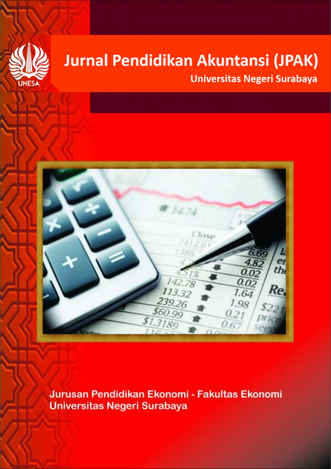Concept or Practice: Kajian Tentang Respon Kemampuan Kognitif Mahasiswa Pada Matakuliah Penganggaran
DOI:
https://doi.org/10.26740/jpak.v9n2.p273-279Keywords:
Cognitive ability; practice; theory; responsAbstract
The way a person receives knowledge has various kinds of responses according to their abilities. This research aims to develop an effective learning approach and the response of students' cognitive abilities in budgeting courses both in theory and practice. A quantitative approach is used as a type of Research and Development (R&D) methods on 102 accounting students who taking Budgeting Courses. Data were obtained from Accounting Students of the Faculty of Economics, UM, who were still taking budgeting courses and were given a questionnaire. The results of observations made in the budgeting course showed that the enthusiasm shown by students showed a good and enthusiastic attitude when explained by the lecturer about practical and theoretical. However, when the students were asked to do practice questions in the theory course, they had difficulty applying the theory to the problem. When online lectures, the conclusion is the use of appropriate learning methods and approaches and media will be simulate the response of students' cognitive abilities both theoretically and practically.
Downloads
Downloads
Published
How to Cite
Issue
Section
License
Authors who publish with this journal agree to the following terms:
- Authors retain copyright and grant the journal right of first publication with the work simultaneously licensed under a Creative Commons Attribution License that allows others to share the work with an acknowledgement of the work's authorship and initial publication in this journal.
- Authors are able to enter into separate, additional contractual arrangements for the non-exclusive distribution of the journal's published version of the work (e.g., post it to an institutional repository or publish it in a book), with an acknowledgement of its initial publication in this journal.
- Authors are permitted and encouraged to post their work online (e.g., in institutional repositories or on their website) prior to and during the submission process, as it can lead to productive exchanges, as well as earlier and greater citation of published work (See The Effect of Open Access).

Jurnal Pendidikan Akuntansi (JPAK) is licensed under a Creative Commons Attribution-NonCommercial 4.0 International License.
 Abstract views: 440
,
Abstract views: 440
, PDF Downloads: 247
PDF Downloads: 247



